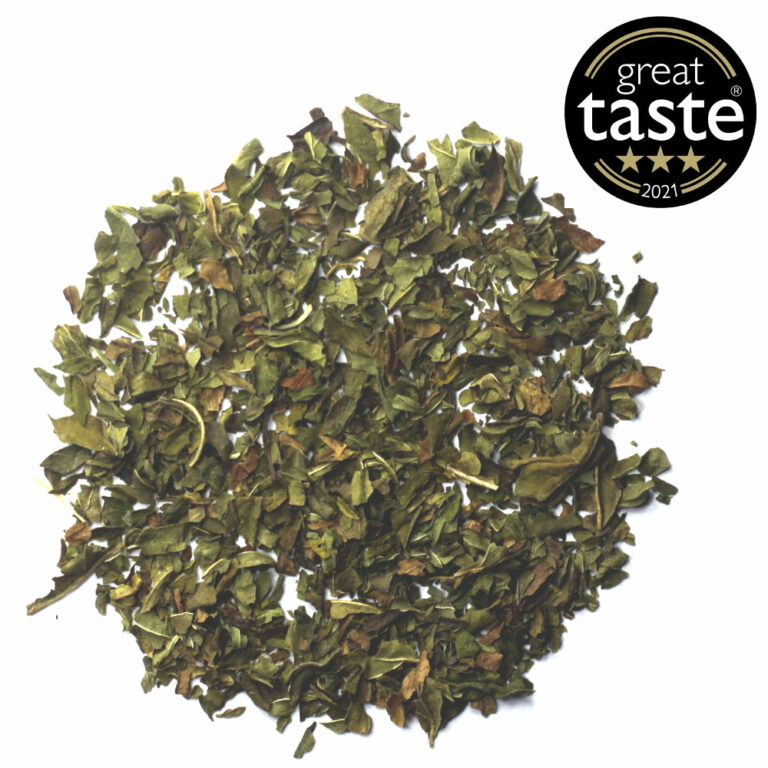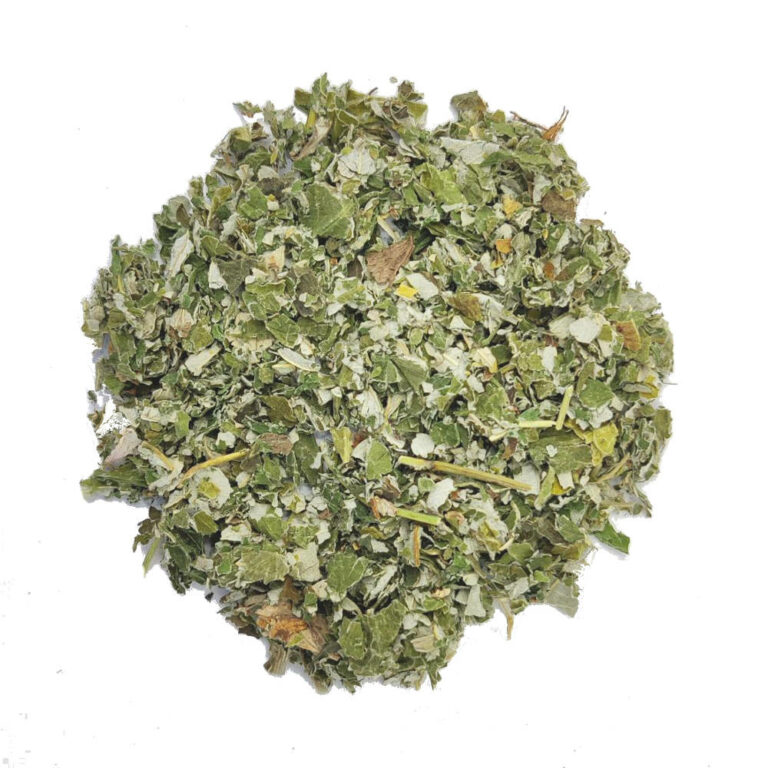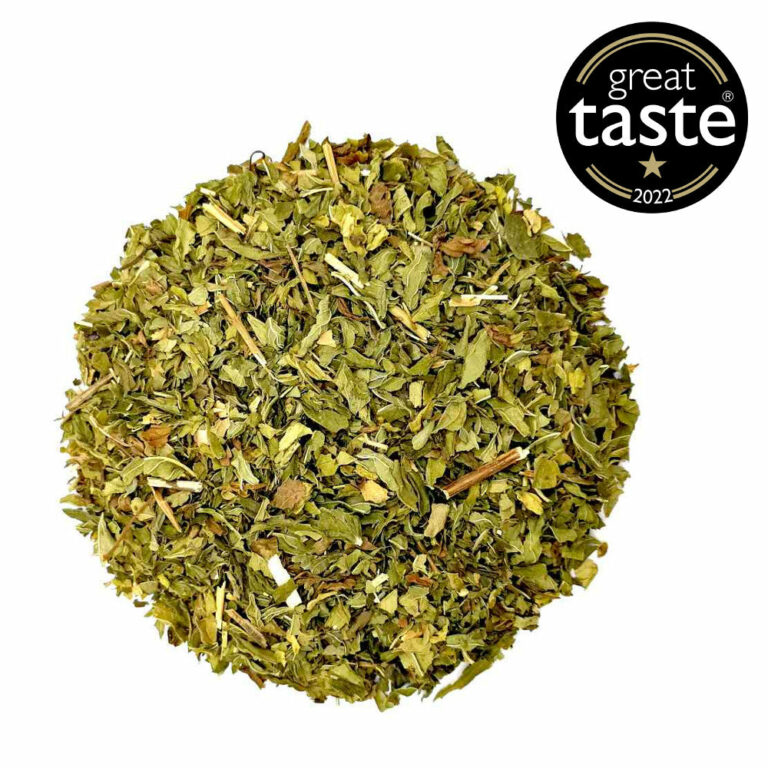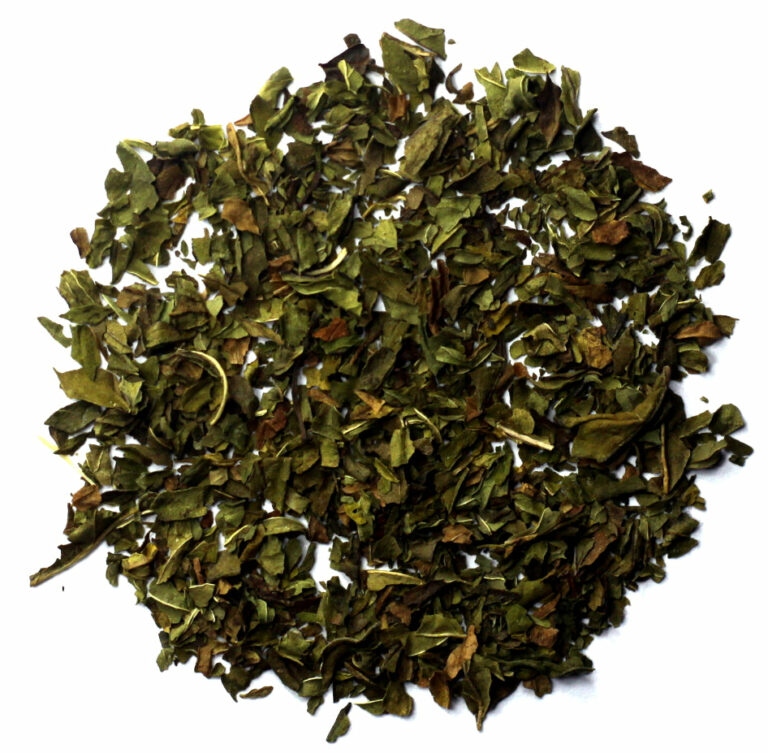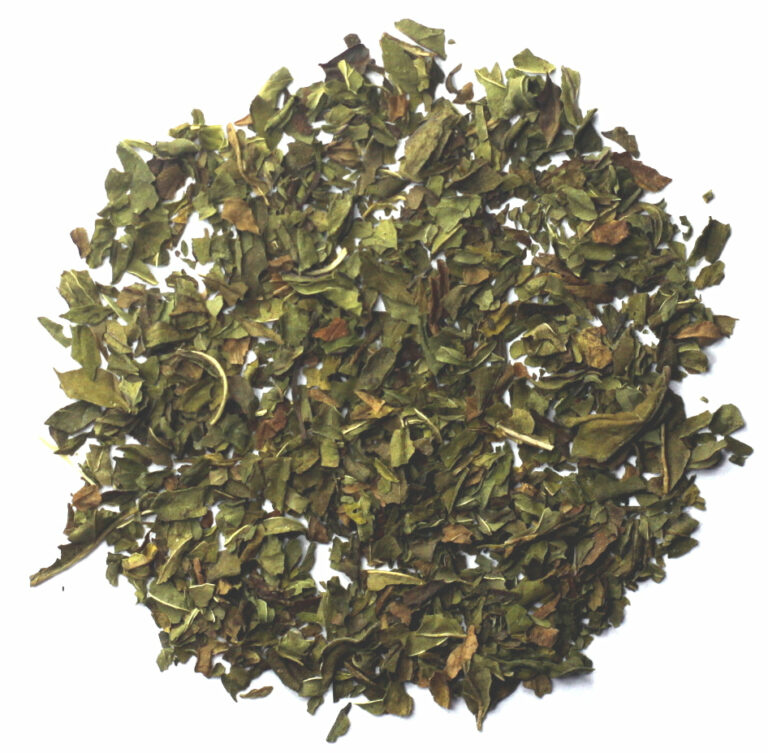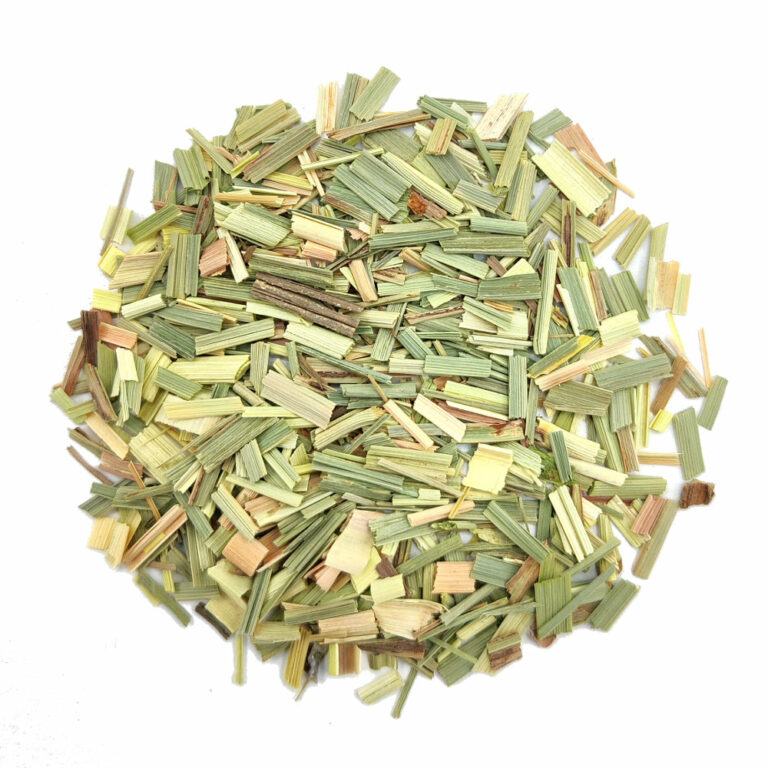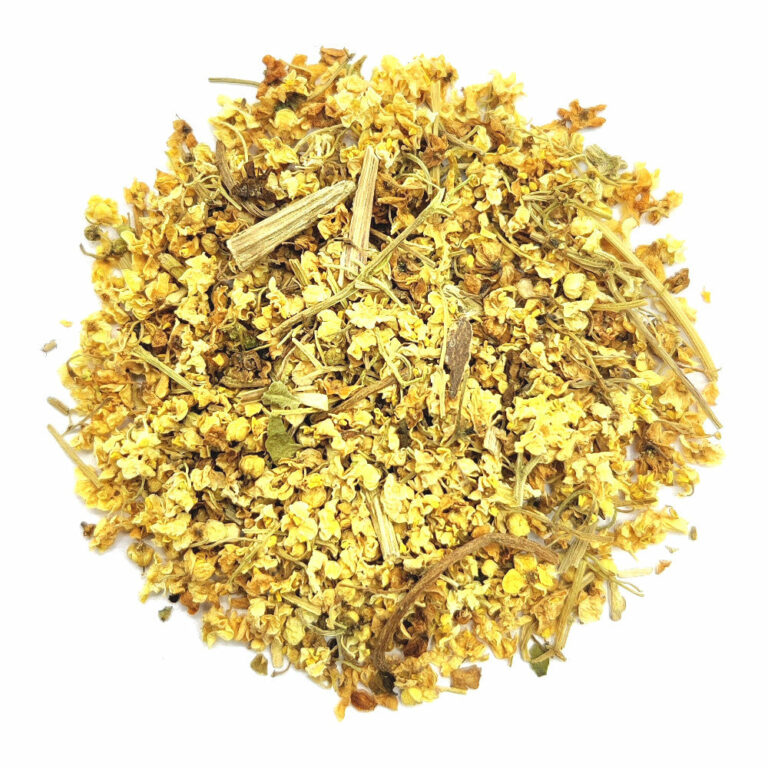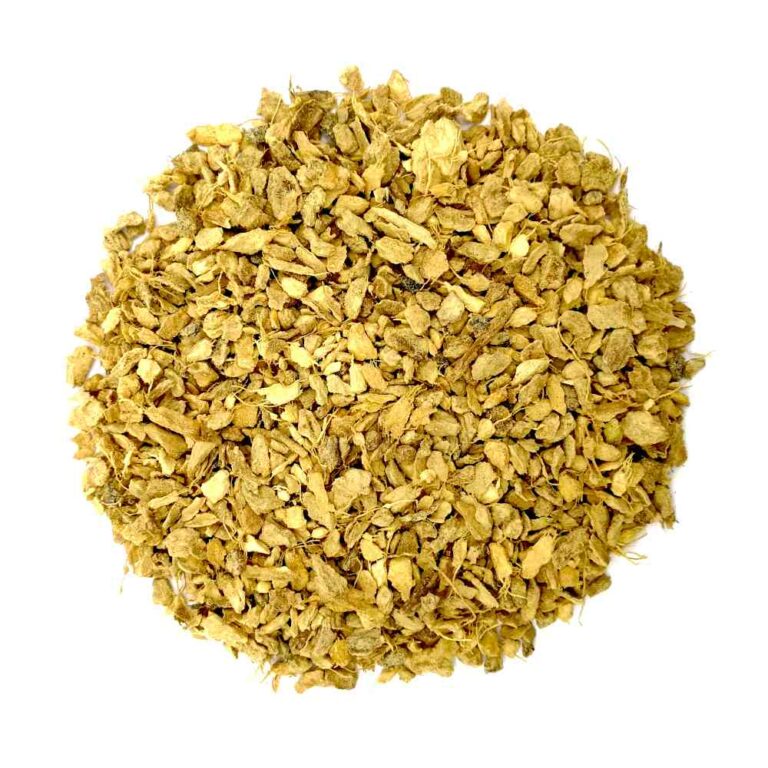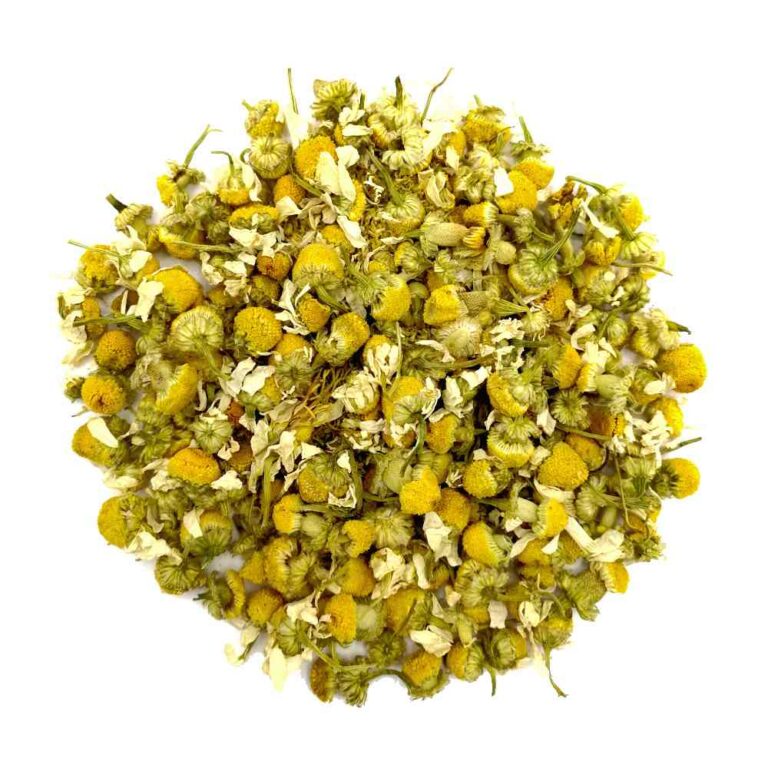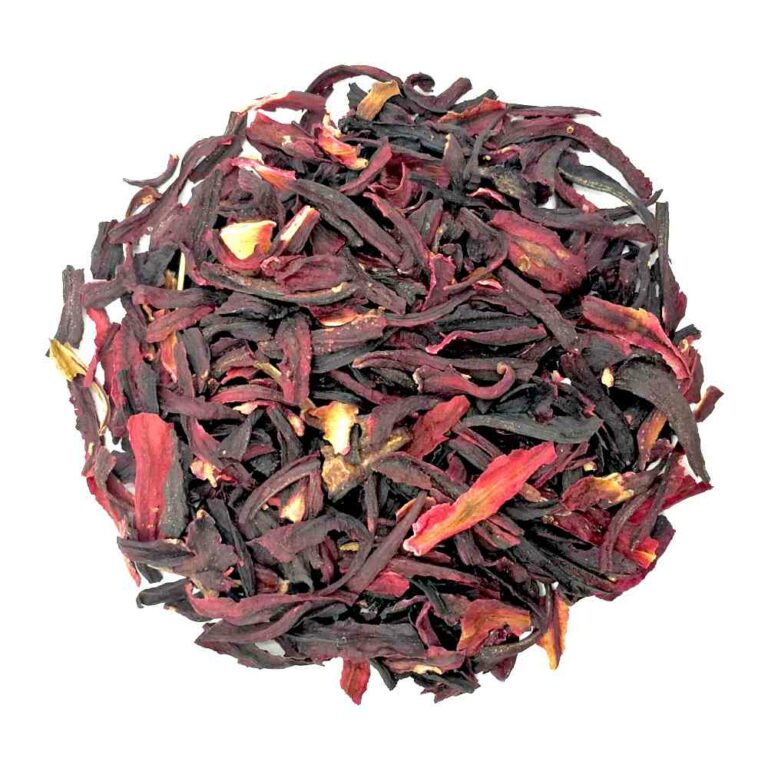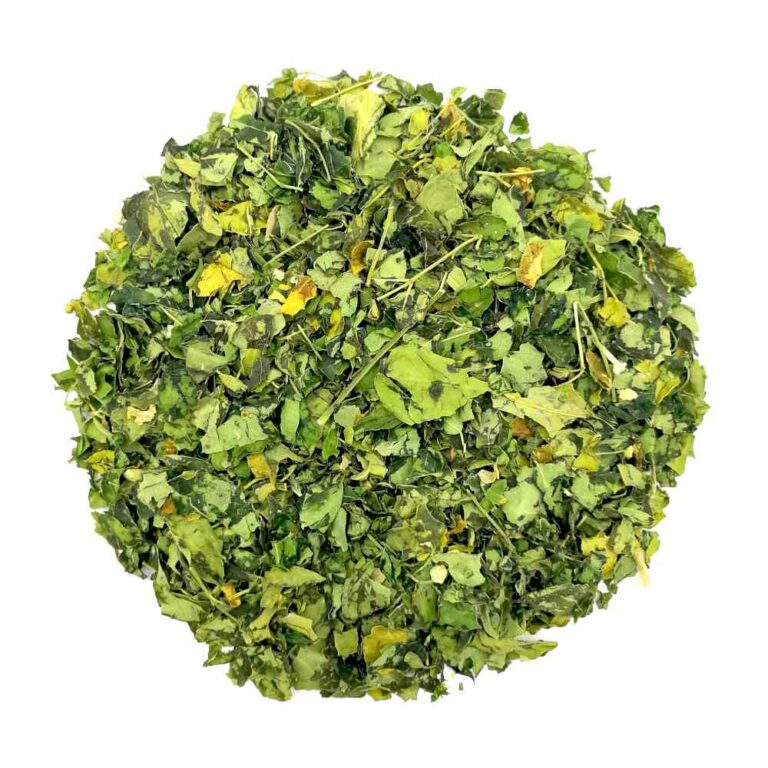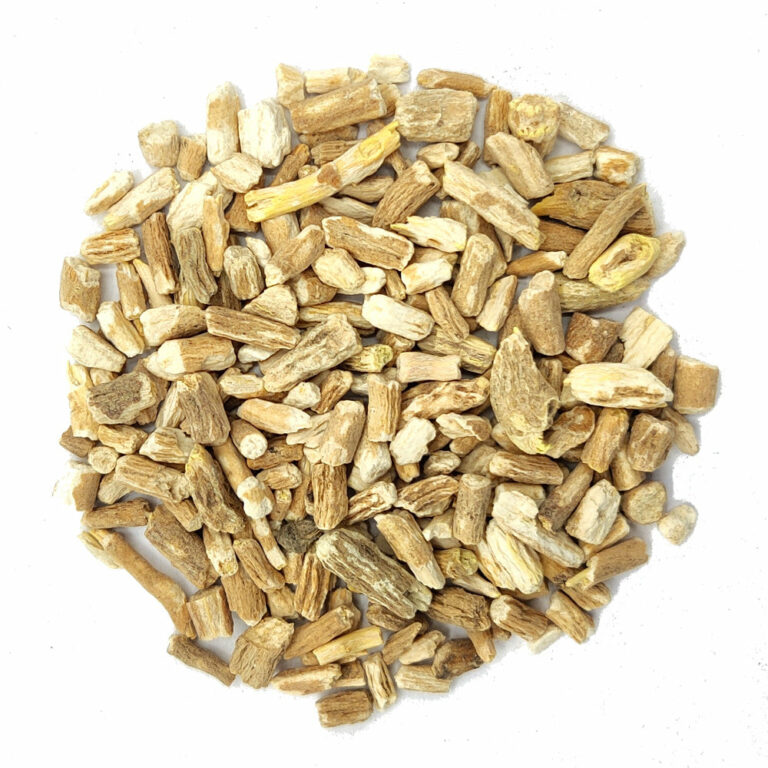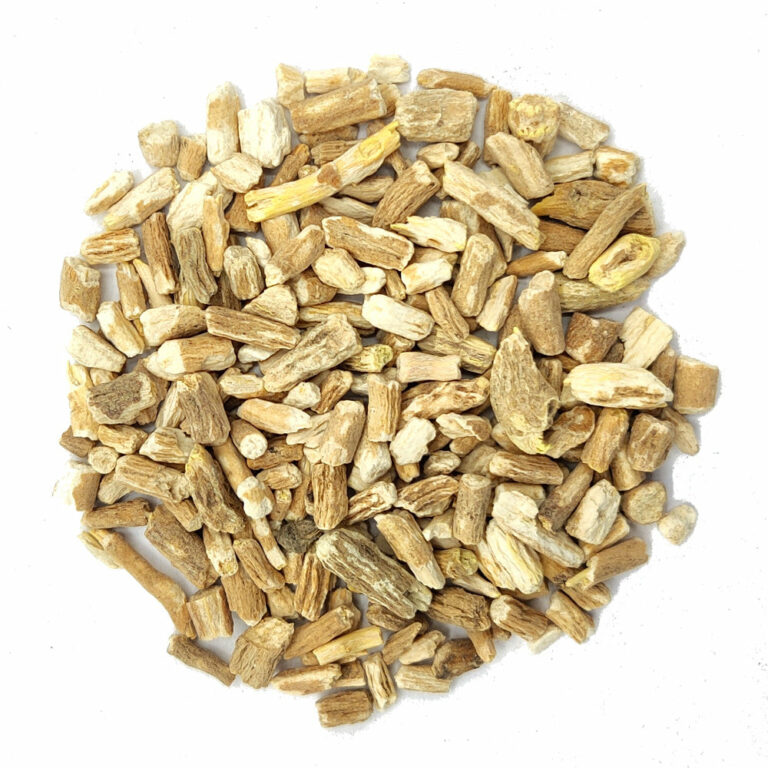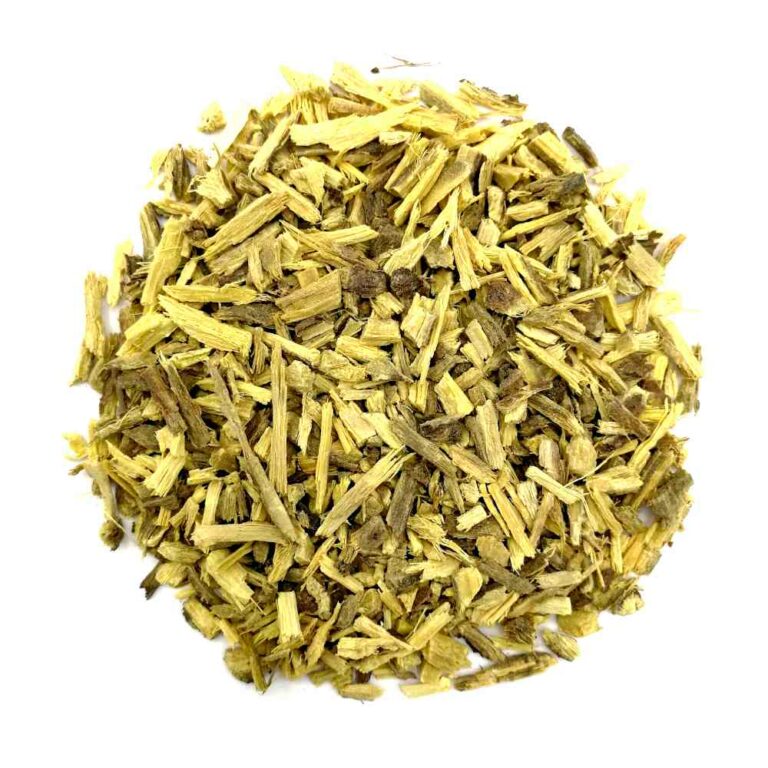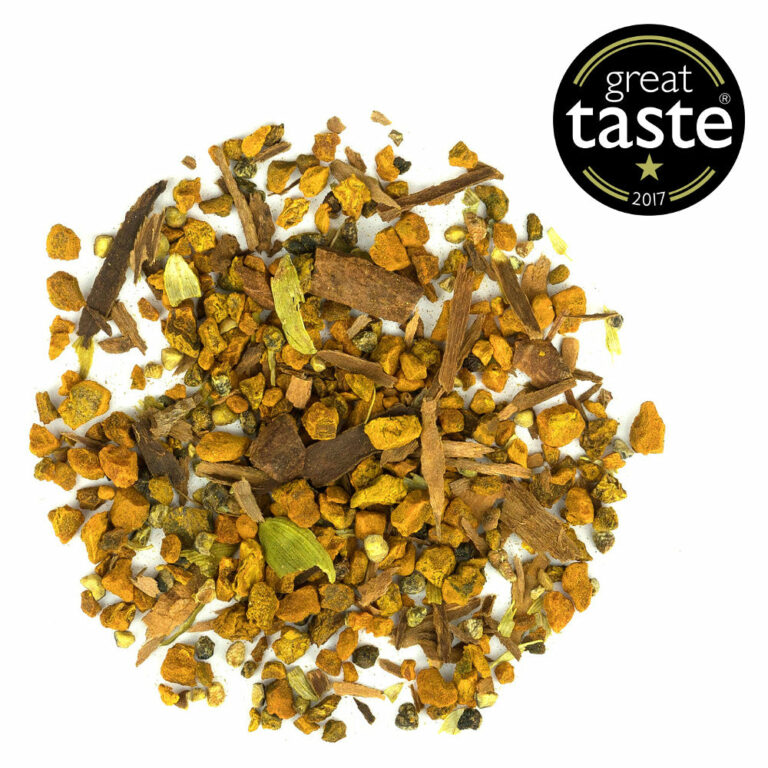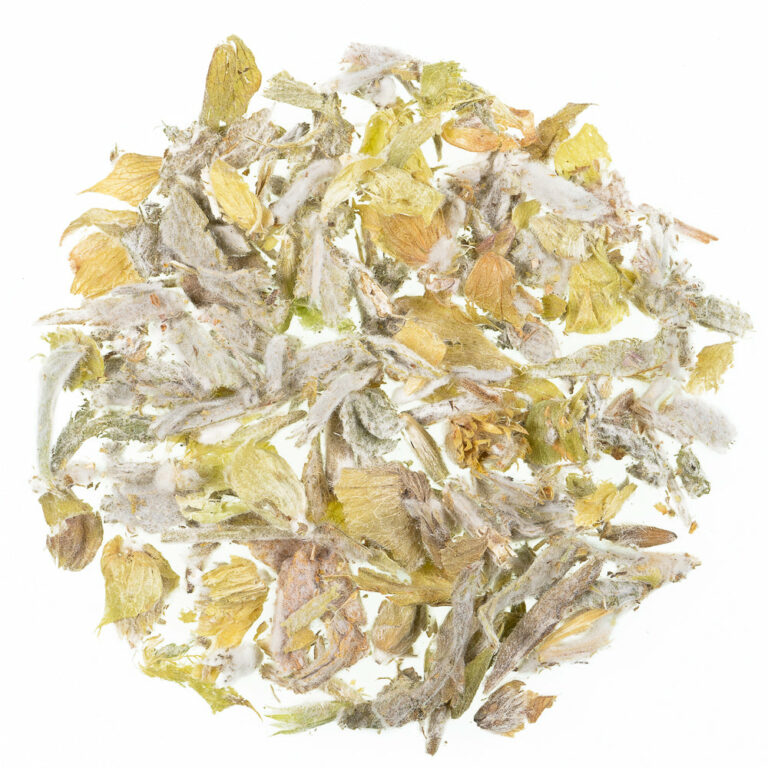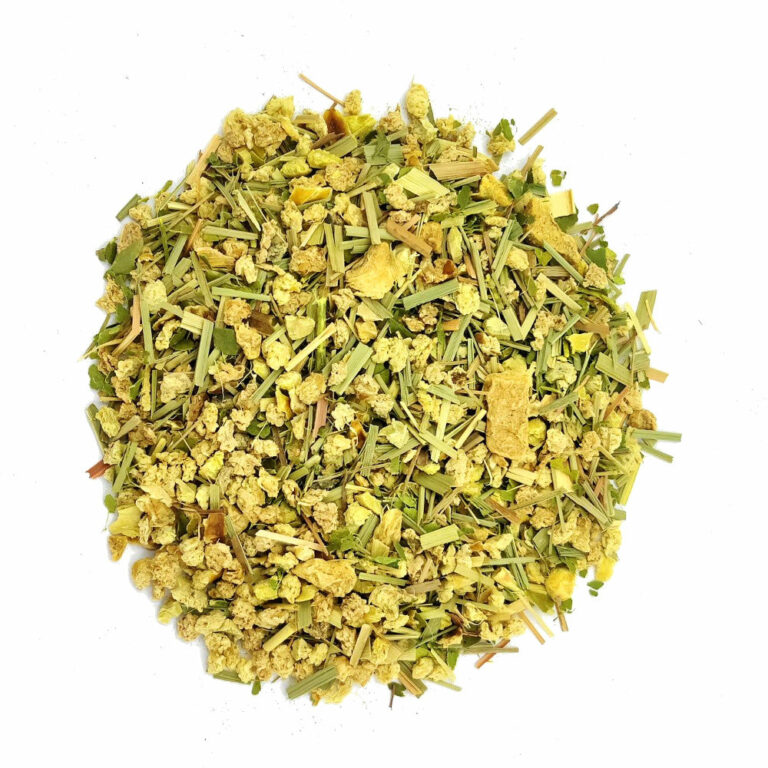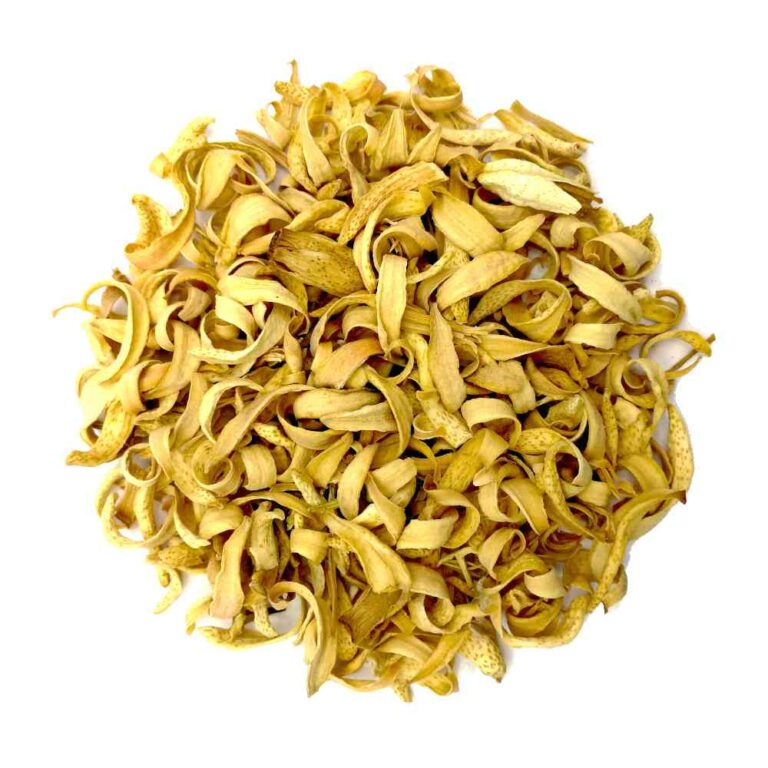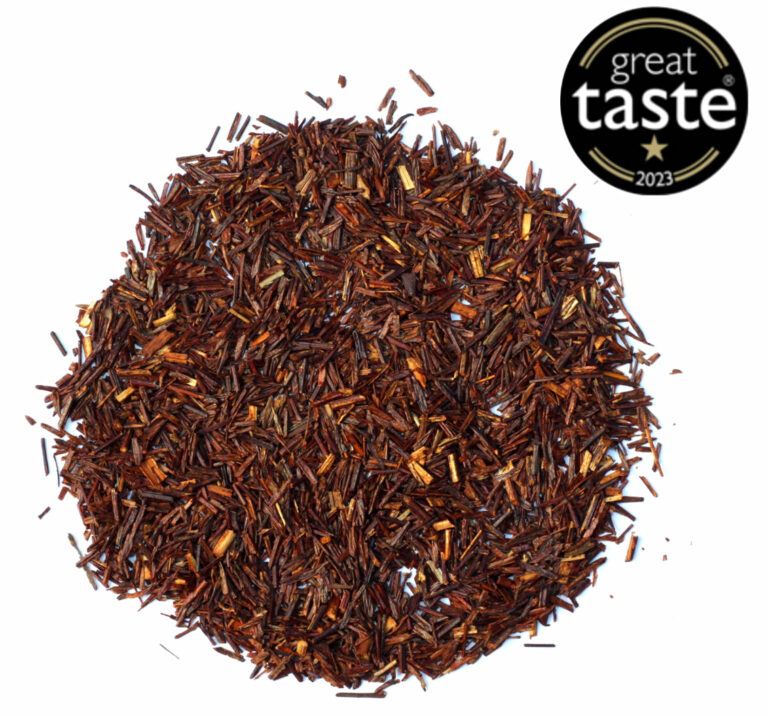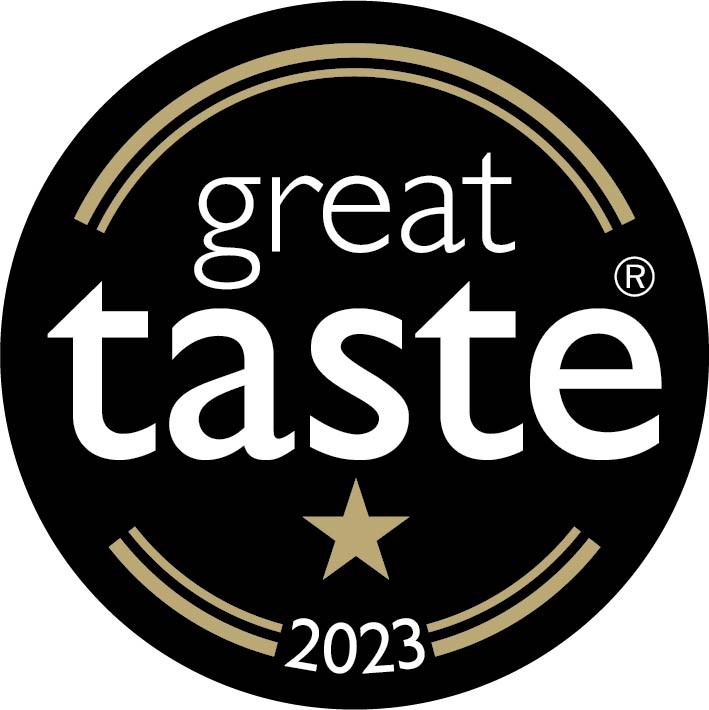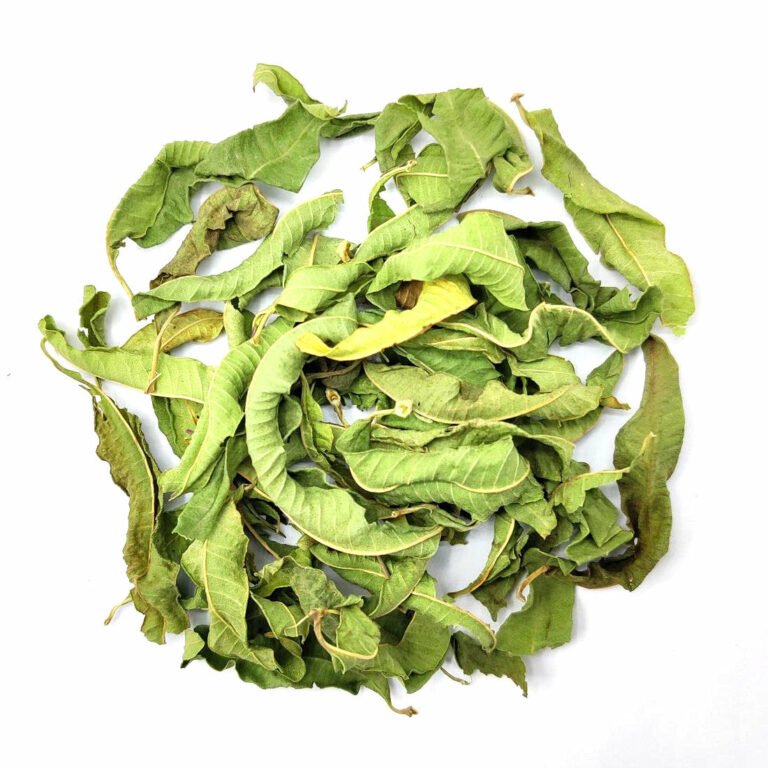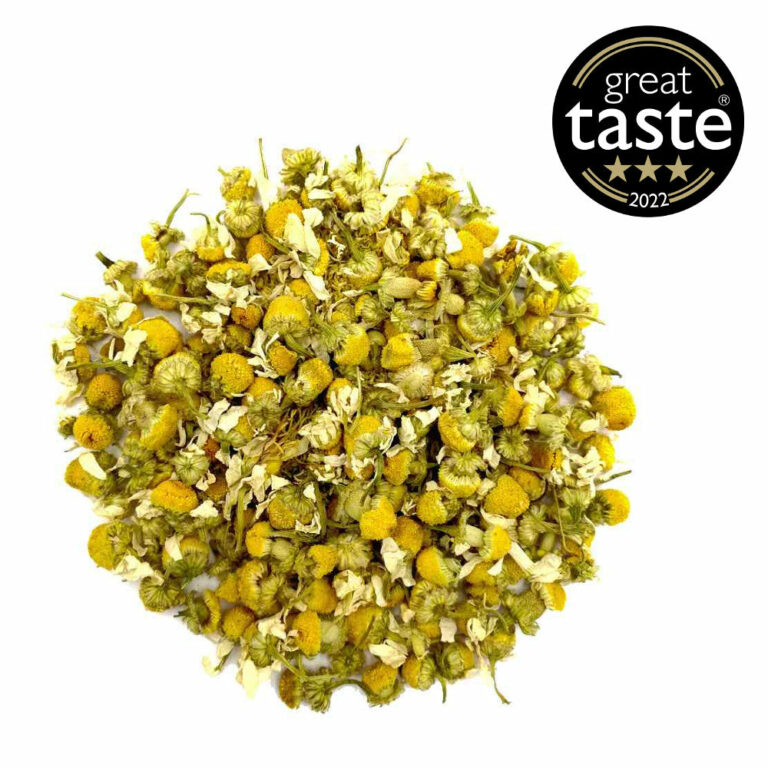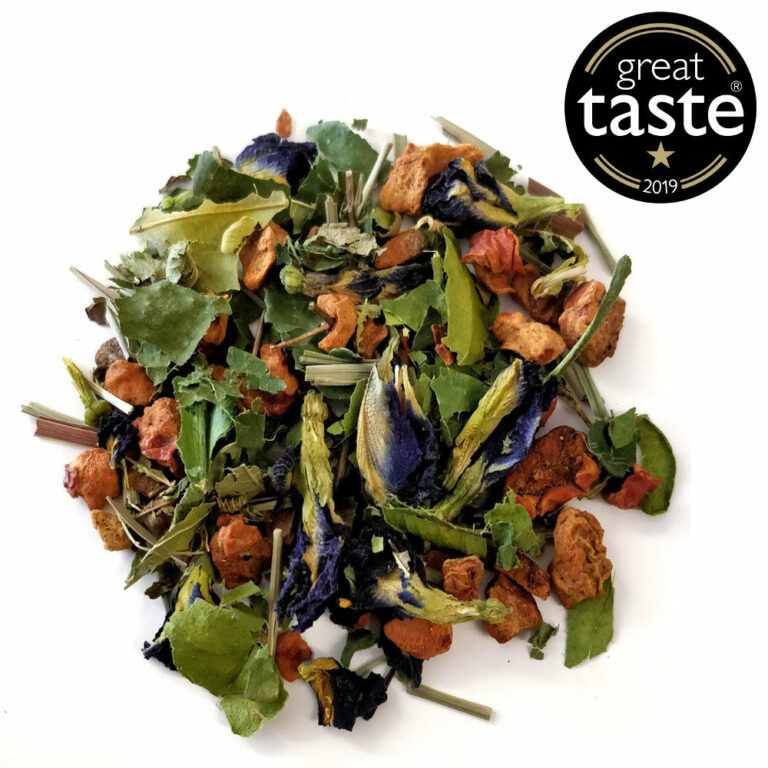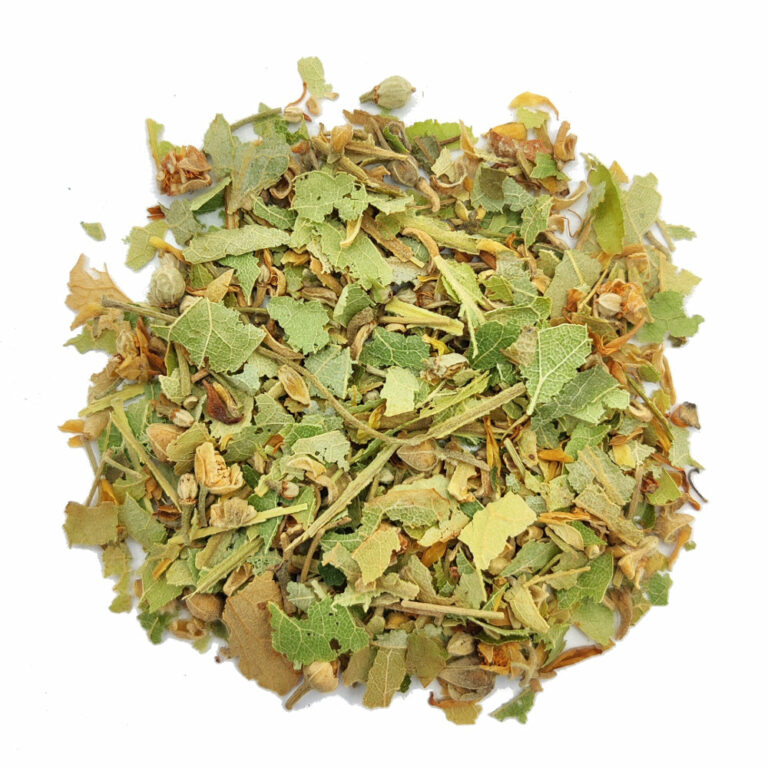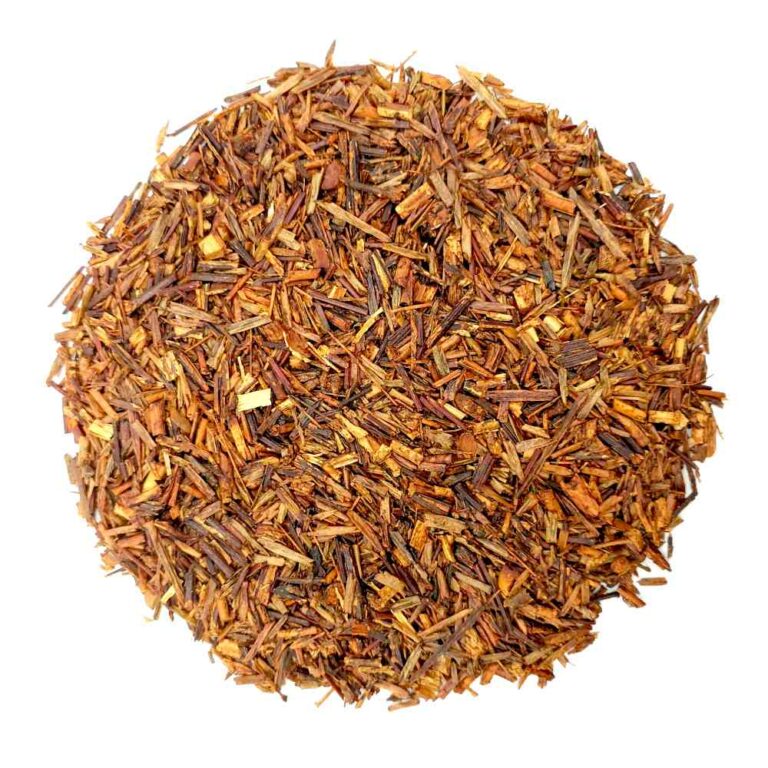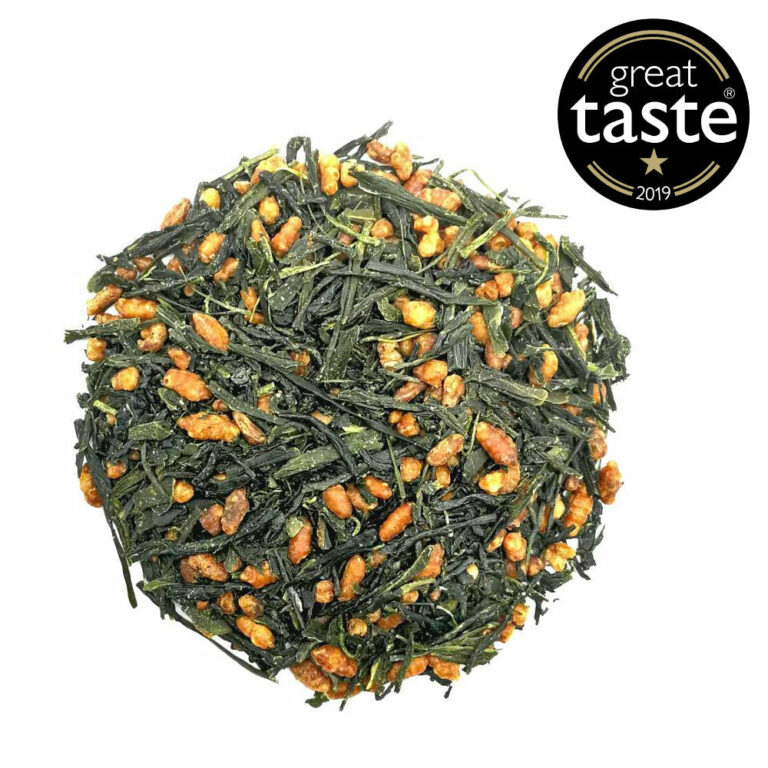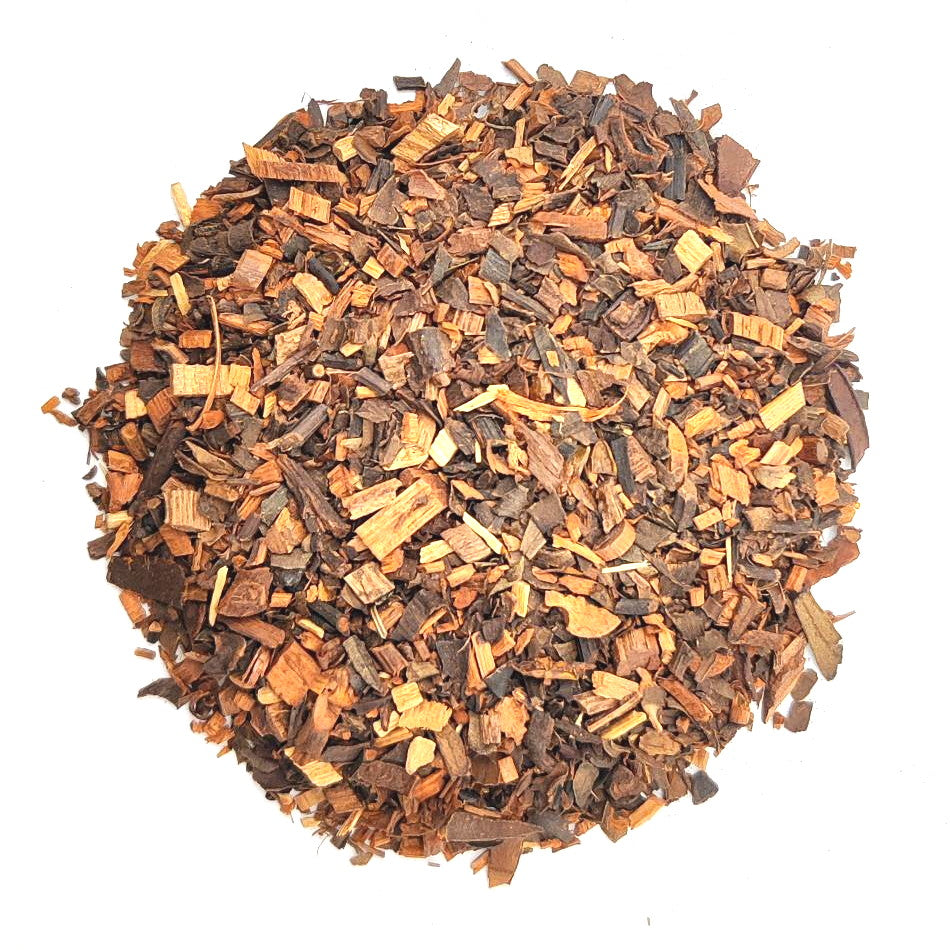
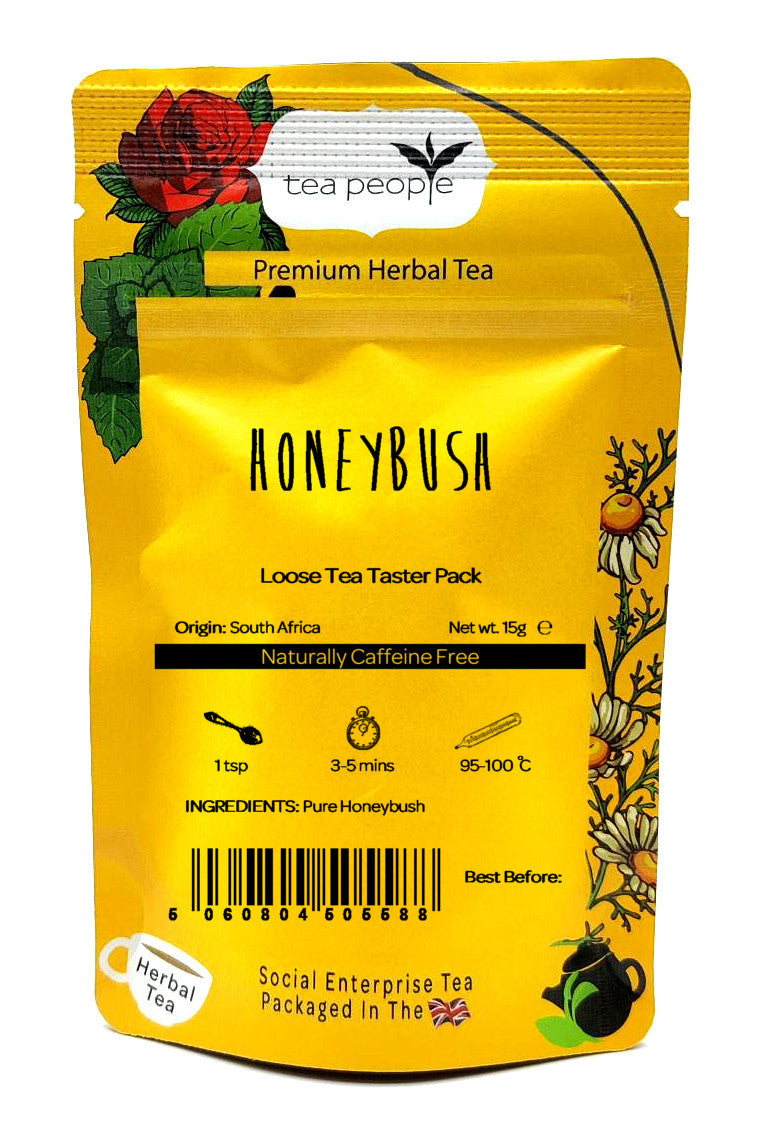
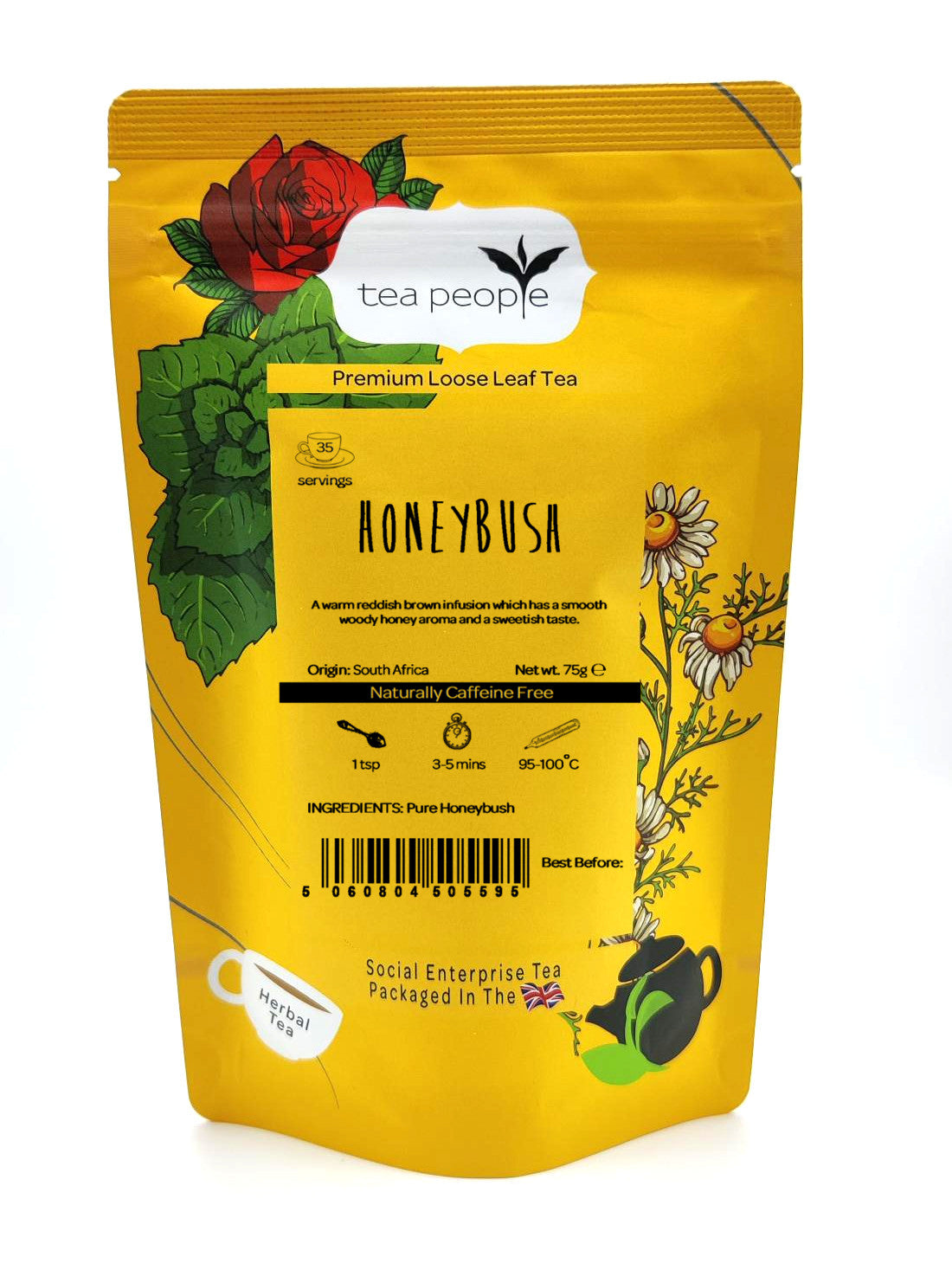
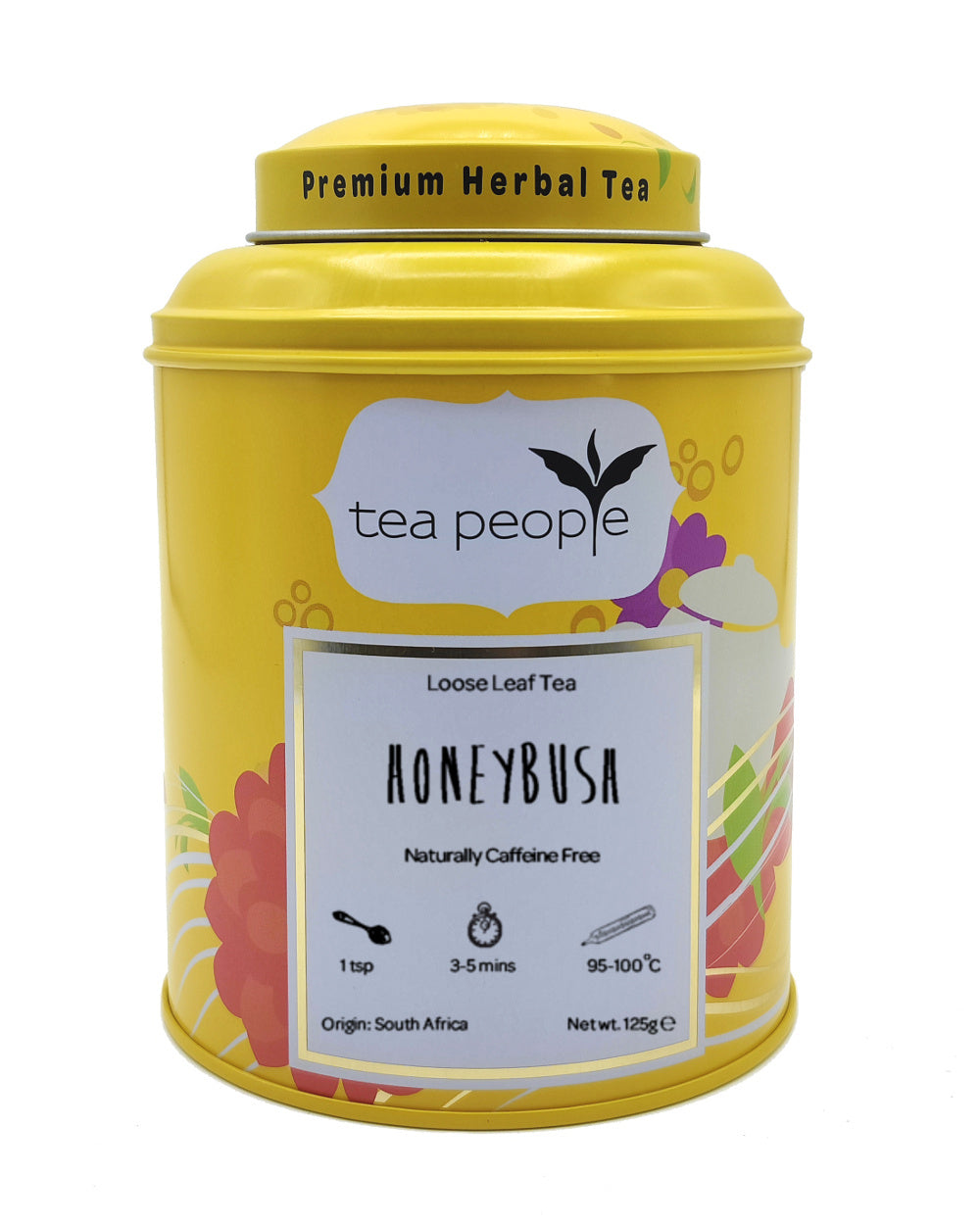
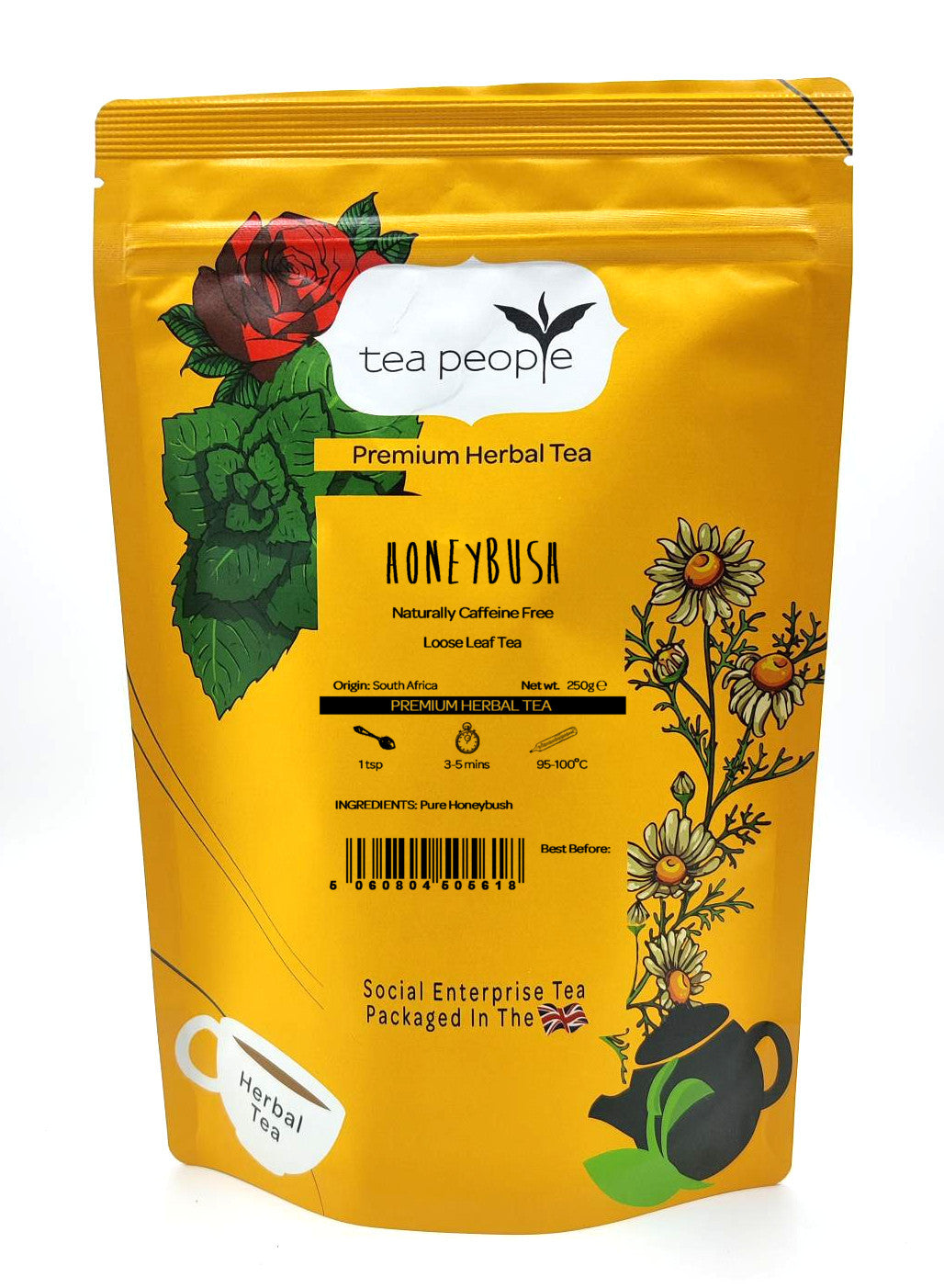
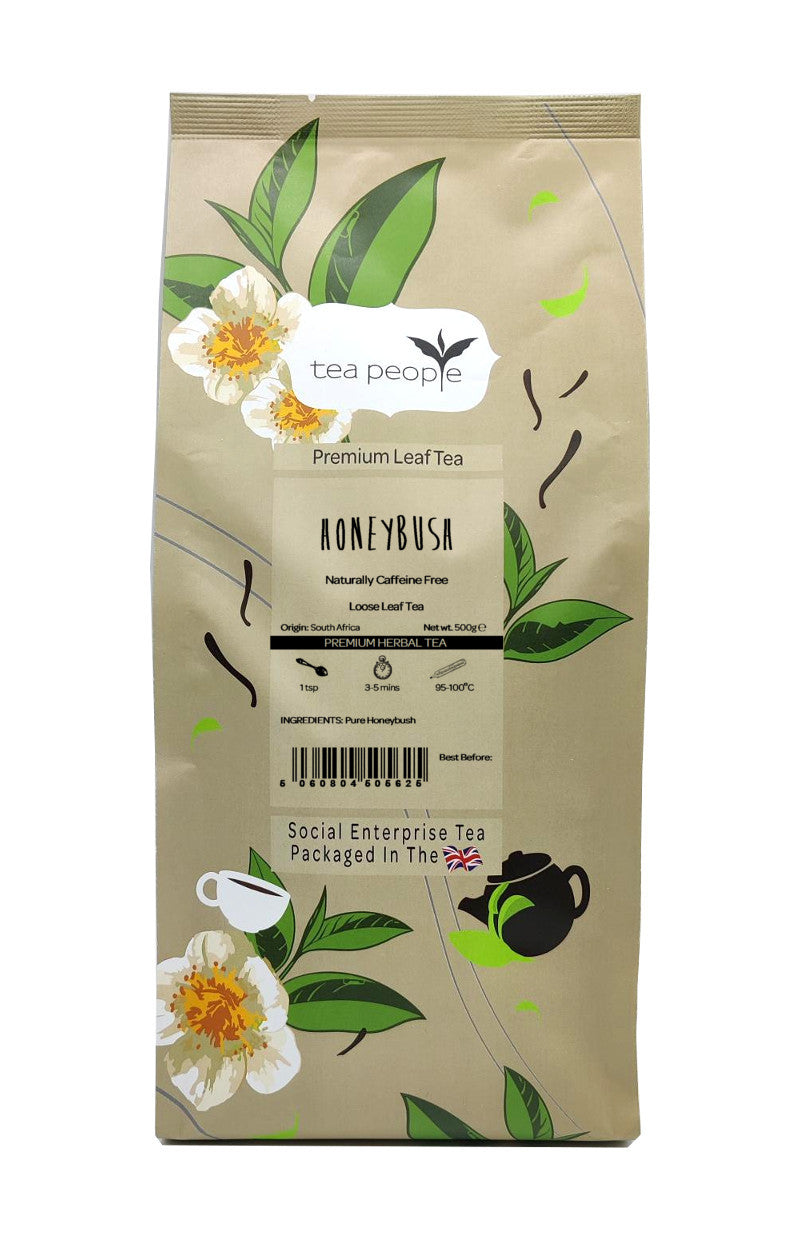
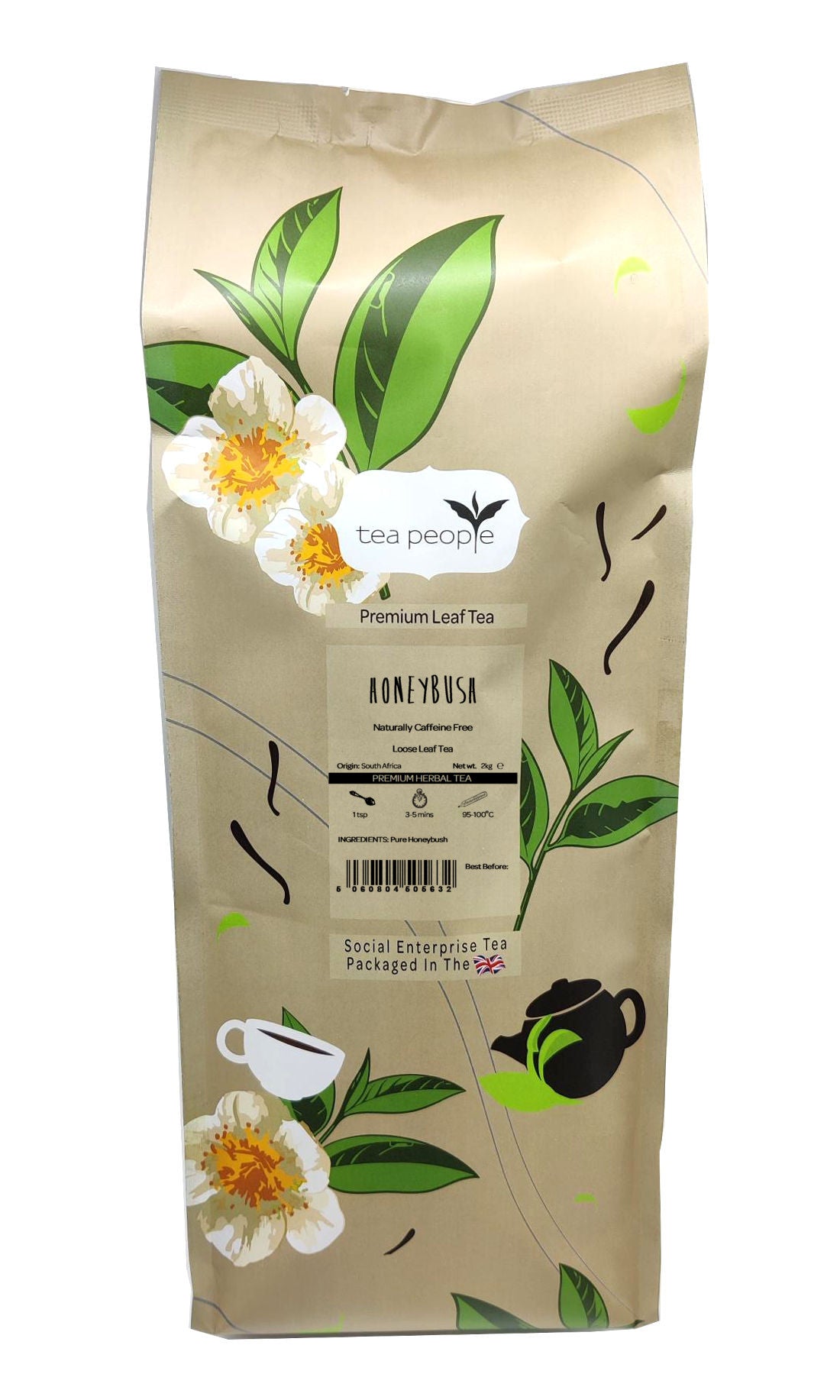
Honeybush Tea - Loose Herbal Tea
A Natural Caffeine-Free Herbal Infusion
Honeybush, Cyclopia sp. (Heuningbos in Afrikaans) is a shrub that grows in small areas in Eastern and Western Cape regions of South Africa with flowers that smell strongly of honey. It has many similarities with Rooibos (redbush) but is sweeter.
Leaves of the shrub are harvested, cut , bruised (often with mechanical rollers), and oxidised. They are are then air-dried to produce the herbal infusion.
Upon being brewed, it yields a warm reddish brown infusion which has a smooth woody honey aroma and a sweetish taste.
- Honeybush can be enjoyed either as a hot infusion or cooled down to make an aromatic iced tea. It can be had with milk or without.
- It can be had either plain or with lemon or honey or both.
- Can also be used to make cordials or used as an ingredient to make a gin base for cocktails like martinis.
- Can be blended with some of our other infusions/ingredients like peppermint, cinnamon or ginger to make a delicious cup of tea.
Honeybush infusions have been noted as a tonic for colds and influenza, catarrh, and pulmonic tuberculosis due to its expectorant potential. It is also becoming well-known for its effectiveness in alleviating menopausal symptoms like hot flushes in women due to its isoflavone content.
Ingredients
Pure Honeybush
Origin
South Africa
How to enjoy this tea
Steep 1tsp per cup for 3-5 mins in 95-100° C water.
Caffeine content
None
Tea People are passionate about all things tea and create Great Taste Award-winning brews. From the finest premium single estate tea, to unique blends and herbal infusions, the teas are available in loose leaf form as well as plastic-free biodegradable pyramid tea bags.
Tea People believe that 'tea is what you make it'. Tea can be different things to different people and with a little effort, creativity and innovation, it can even become a powerful medium for social change.
Half of the brand's net profits go towards supporting educational infrastructure and improving the lives of underprivileged communities in and around the tea growing regions.






